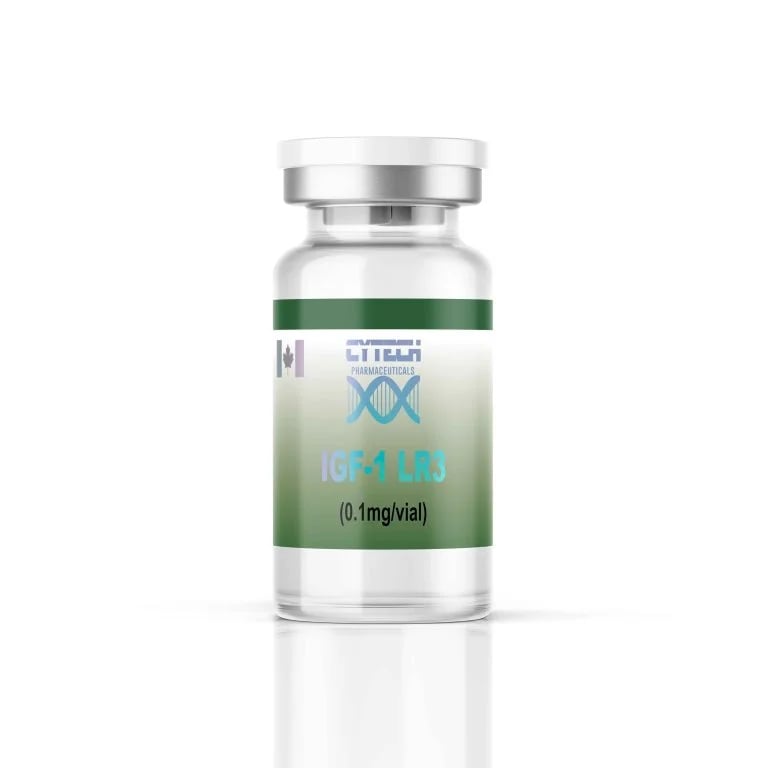Understanding IGF-1 LR3: The Synthetic Variant of Insulin-Like Growth Factor 1
2 min read


What is IGF-1 LR3?
IGF-1 LR3, or insulin-like growth factor 1 long r3, is a synthetic variant of the naturally occurring protein IGF-1. This particular variant has gained significant attention in the fields of health, fitness, and bodybuilding due to its enhanced properties and potential benefits. IGF-1 itself plays a critical role in growth and development by promoting cell growth and regeneration, but IGF-1 LR3 has been modified to increase potency and bioavailability.
Benefits of IGF-1 LR3
The primary advantages of using IGF-1 LR3 over its natural counterpart lie in its longer half-life and increased stability in the bloodstream. This modification allows for a sustained release of growth factors, promoting more effective muscle growth and recovery. Additionally, IGF-1 LR3 is known to facilitate the uptake of nutrients in muscle cells, enhancing protein synthesis and potentially leading to significant gains in muscle mass and strength.
Moreover, IGF-1 LR3 can help decrease body fat and improve the overall metabolic profile. As it promotes the growth of lean tissue, individuals using this compound may find it easier to achieve a favorable body composition. Athletes and bodybuilders often seek out this synthetic variant to enhance their performance results while minimizing the risks typically associated with anabolic steroids.
Potential Side Effects and Considerations
While IGF-1 LR3 offers several potential benefits, it is essential to recognize that, like any compound, it can introduce risks. Users should be cautious of potential side effects, including hypoglycemia, as IGF-1 LR3 can lower blood sugar levels. Other possible effects might include joint pain, increased water retention, and changes in hormone levels. It is critically important to consult with a healthcare provider before starting any regimen involving IGF-1 LR3.
Furthermore, the use of synthetic growth factors may be seen as controversial in competitive sports. Many sports organizations have banned IGF-1 LR3, which raises ethical questions regarding its use among athletes. Clear communication about the rules and regulations of competitions is key for athletes considering the use of this compound.
Conclusion
In summary, IGF-1 LR3 presents a fascinating blend of potential growth benefits and risks. As a synthetic variant of insulin-like growth factor 1, it holds promise for enhancing muscle growth and recovery. However, anyone considering its use must weigh the benefits against the possible side effects and ethical implications in competitive settings. An informed approach, founded on scientific understanding and professional consultation, is crucial in navigating the world of synthetic growth factors.
Quality
Best prices and swift shipping for steroids.
Trust
Shop
123-456-7890
© 2025. All rights reserved.
ABOUT US
SHIPPING POLICY
RETURN POLICY
PRIVACY POLICY
